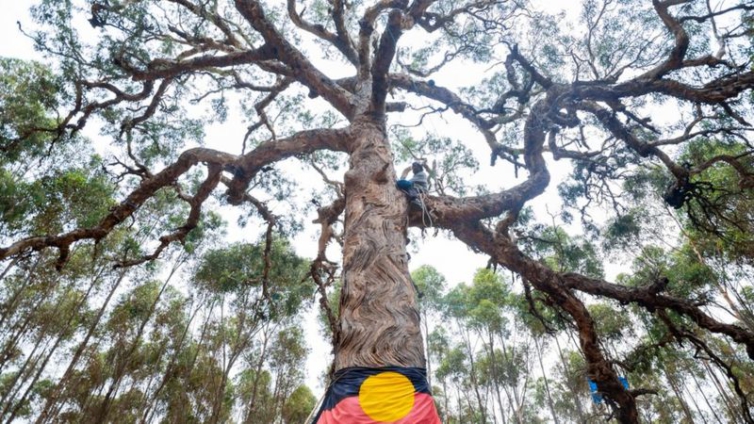A new study has concluded that, trees across the semi-arid sub-Saharan Africa store less carbon than some models previously predicted.
An inventory of 9.9 billion trees derived from more than 300,000 satellite images was taken for analysis by a team of scientists, including researchers from the United States National Aeronautics and Space Administration.
The study was published in Sub-continental-scale carbon stocks of individual trees in African dryland in Nature journal on March 1, 2023.
The study provided detailed estimates of the quantity of carbon stored in the ecosystem and discovered that the African drylands are home to around 0.84 petagrams, or 840 million tonnes, of carbon.
Having an accurate tree carbon estimate is essential for climate change projections, which are influenced by how long trees and other vegetation store carbon. This “carbon residence time,” as scientists call it, is very short for grasses and bushes, which grow seasonally, but much longer for trees that grow for years. Knowing how much carbon a landscape stores is dependent on knowing exactly what is growing there.
“Our team gathered and analyzed carbon data down to the individual tree level across the vast semi-arid regions of Africa or elsewhere – something that had previously been done only on small, local scales," said Compton Tucker, lead scientist on the project and an Earth scientist at NASA’s Goddard Space Flight Center in Greenbelt, Maryland.
Previous satellite-based estimates of tree carbon in Africa’s drylands often mistook grasses and shrubs for trees. “That led to over-predictions of the carbon there,” the study said.
In the latest study, the researchers sorted through more than 326,000 commercial satellite images from the QuickBird-2, GeoEye-1, WorldView-2, and WorldView-3 satellites using sophisticated machine learning and artificial intelligence algorithms. The images were obtained from NASA's Center for Climate Simulation and organised and prepared for machine learning processing using the Explore/ADAPT Science Cloud.
Martin Brandt and Ankit Kariyaa of the University of Copenhagen compiled AI training data from 89,000 individual trees and adapted a neural network to detect the individual trees in high-resolution 50-centimeter scale images of Africa's drier, less verdant landscapes.
A "tree," according to the researchers, is anything with a green, leafy crown and a neighboring shadow. They then taught the machine learning program to count the trees over millions of hours of supercomputing on the University of Illinois' Blue Waters supercomputer. When the researchers compared their machine-learning results to human assessments of the landscape, the computers measured tree-crown area 96.5% correctly.
Using allometry - the study of how the features of living animals vary with growth - the scientists can calculate the quantity of carbon in each tree's leaves, roots, and wood from measurements of tree crown area.
A team led by Pierre Hiernaux of the University of Toulouse measured leaf mass, wood mass, and root mass in 30 distinct tree species. They analysed those masses of carbon and developed a statistical connection to tree crown area.
The African tree carbon data are now publicly available through a viewer app created by the team. It enables users to see every tree in the research area as well as the amount of carbon it stores.
This data may be valuable for scientists and students researching the carbon cycle, policymakers attempting to strengthen conservation efforts, and farmers seeking to quantify the amount of carbon stored on their farms.
Carbon is continually cycling between the land, the atmosphere, the ocean, and the atmosphere. During photosynthesis, trees extract carbon dioxide, a greenhouse gas, from the atmosphere and store it in their roots, trunks, branches, and leaves. As a result, increasing tree cover is frequently proposed as a means to counteract rising carbon emissions.
Latest Stories
-
Tens of thousands without water in Mayotte as curfew brought in
10 minutes -
ORAL: We won’t witch-hunt, we’ll focus on transparency, not revenge – Ablakwa
32 minutes -
Attempted robbery: Accused claims he carried cutlass for protection
49 minutes -
Embattled Liberian speaker questioned by police over parliament fire
3 hours -
‘I won’t be a judge in my own court; ORAL is about protecting public purse’ – Ablakwa
3 hours -
Bawumia joins thousands in Kumasi for burial prayers for Ashanti Regional Imam
3 hours -
Blue Gold Bogoso Prestea Limited challenges government actions in court
4 hours -
Verdicts due for 51 men in Pelicot mass rape trial that shook France
4 hours -
Syria not a threat to world, rebel leader Ahmed al-Sharaa tells BBC
4 hours -
Patrick Atangana Fouda: ‘A hero of the fight against HIV leaves us’
4 hours -
Trinity Oil MD Gabriel Kumi elected Board Chairman of Chamber of Oil Marketing Companies
5 hours -
ORAL campaign key to NDC’s election victory – North America Dema Naa
5 hours -
US Supreme Court to hear TikTok challenge to potential ban
5 hours -
Amazon faces US strike threat ahead of Christmas
6 hours -
Jaguar Land Rover electric car whistleblower sacked
6 hours

